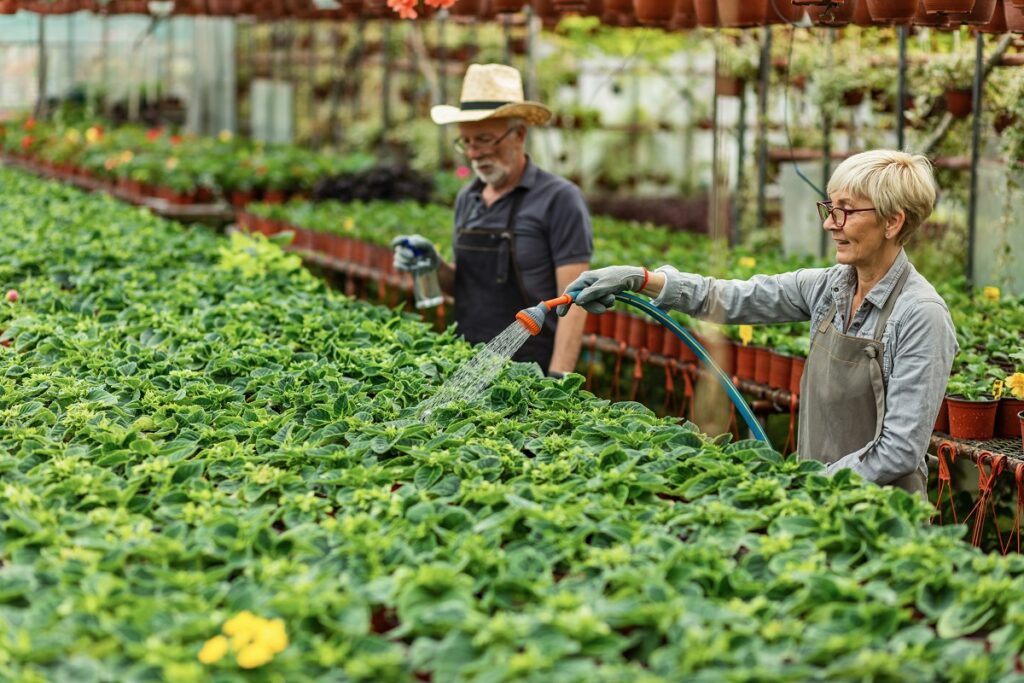Water is the lifeblood of any farm or garden. For small-scale growers, using the right irrigation method can mean the difference between a thriving harvest and a disappointing yield. Whether you’re tending a backyard garden or managing a small rural plot, efficient irrigation ensures your plants get the water they need without wasting resources.
This guide breaks down the most effective irrigation methods for small-scale operations, including modern technologies and DIY setups. Let’s dive into the essentials of water management to help you grow more with less.
Why Smart Irrigation Matters for Small Farms
Water plays a crucial role in plant health:
- Transports nutrients from the soil
- Regulates plant temperature
- Supports photosynthesis
When water is mismanaged, crops can suffer from drought stress, diseases, or stunted growth. Proper irrigation leads to:
- Faster, more uniform crop development
- Higher yields and better-quality produce
- Reduced risk of pests and diseases
- Improved soil structure and microbiological activity

Traditional Irrigation Methods for Small-Scale Growers
1. Watering Cans and Hoses
Perfect for home gardens or container planting. This hands-on method allows growers to control where and how much water is applied.
Pros:
- Low cost
- No setup required
Cons:
- Labor-intensive
- Not scalable for larger areas
2. Furrow or Surface Irrigation
Water flows through shallow channels between crop rows. Best for flat land with clay soils that retain water well.
Pros:
- Simple design
- Low-tech
Cons:
- High evaporation loss
- Uneven distribution if not managed carefully
Modern Irrigation Technologies: Smarter, Greener Solutions
1. Drip Irrigation
This efficient method delivers water directly to plant roots via tubing with emitters. Ideal for conserving water and reducing weed growth.
Benefits:
- Precise water delivery
- Reduces disease by keeping foliage dry
- Saves up to 60% water compared to overhead irrigation
Best For: Garden beds, raised beds, row crops, orchards
2. Sprinkler Systems
Mimics natural rainfall using rotating or fixed spray heads. Covers wide areas and is easy to install.
Benefits:
- Great for lawns and uniform crops
- Adjustable coverage and pressure
Limitations:
- Higher water loss due to evaporation and wind
- Can promote leaf diseases if used late in the day
Best For: Larger gardens, open fields
3. Soil Moisture Sensors
These tools monitor real-time moisture levels and automate irrigation based on plant needs.
Benefits:
- Water only when necessary
- Reduces labor and saves money over time
Best For: Tech-savvy growers, greenhouses, and precision agriculture
How to Set Up Your Own DIY Irrigation System
Follow these steps to design a system tailored to your plot:
- Assess Water Needs — Determine how much and how often your crops need watering.
- Choose the Right System — Match your layout and goals (drip, sprinkler, manual).
- Measure the Area — Helps calculate tubing length and pressure requirements.
- Gather Materials — Include hoses, connectors, valves, emitters, and timers.
- Install Strategically — Place emitters or sprinklers to ensure even coverage.
- Test and Adjust — Observe flow rates, adjust pressure, and fix leaks.
- Create a Schedule — Water early morning or late evening to reduce evaporation.
Water-Saving Tips for Every Grower
- Use Mulch: Helps retain moisture and suppress weeds
- Harvest Rainwater: Set up barrels or cisterns to capture rain
- Avoid Overwatering: Watch for signs of water stress (yellow leaves, wilting)
- Group Plants by Water Needs: Reduces waste and simplifies scheduling
You may also like: Sustainable Farming with Biofertilizers: Natural Solutions to Boost Soil Fertility
Final Thoughts: Irrigation Is a Smart Investment
You don’t need a huge budget to build an effective irrigation system. Even simple upgrades like drip lines or smart timers can significantly improve crop health and yield. For growers in the U.S. looking to conserve resources and farm sustainably, irrigation isn’t just about watering — it’s about long-term success.
Ready to upgrade your farm or garden? Start small, experiment, and see how the right irrigation system can transform your harvest.
Explore more sustainable growing guides at Plant and Harvest.


One Response